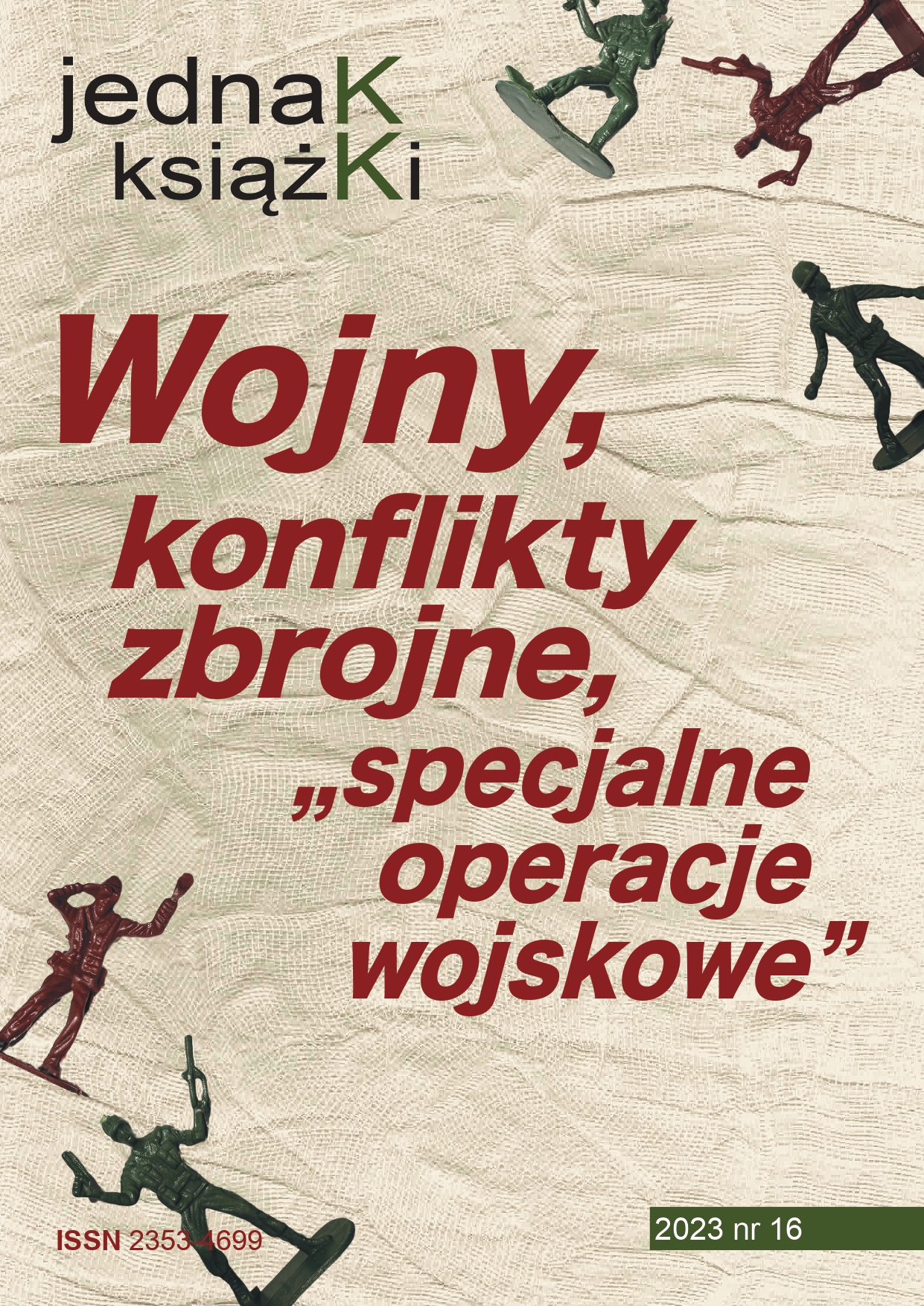Psy wojny kontra kundle pokoju: siła hybrydowości w powieści Vieta Thanha Nguyena „Sympatyk"
DOI:
https://doi.org/10.26881/jk.2023.16.02Słowa kluczowe:
Nepantla, Vietnam War, Viet Thanh Nguyen, hybridity, memoryAbstrakt
The protagonist-narrator of Viet Thanh Nguyen’s novel, as he often repeats, is a person of two minds. As the child of a Vietnamese woman and a French Catholic priest, he becomes a „hybrid” on the genetic level and later also in the cultural sphere. His upbringing has not only been influenced by the Catholic religion, communist indoctrination but also by the American literary canon, as he has graduated from a literary studies program in the US. He is a communist spy in the South Vietnamese Army during the war, and after the fall of South Vietnam he escapes to the United States as one of the few refugees. Loyal to the communist revolution in the US, he continues his intelligence activities going to any lengths and using any means considered necessary.
The nameless narrator is not only a character that reminds a hero from a Hollywood action movie, but also a hybrid – a man who, through diversity or perhaps the merging of mutually exclusive identities, inhabits the sphere in between. This phenomenon, called nepantlerismo by Gloria Anzaldúa, means consciously navigating the gaps between the binary oppositions of those who belong to neither of the two sides.
In the article, I look at the phenomenon of hybridity and consider to what measure it can be seen as an antidote to national chauvinism, imperialism and violence. I also examine what Viet Thanh Nguyen in his scholarly work calls the „industrialization of memory,” viewing Hollywood as a tool for producing memories of the Vietnam War operating within the US military-industrial complex.
Downloads
Bibliografia
Alexandra A., Militarism, „Social Theory and Practice”, 19, 2 (1993), 205–223.
Anzaldúa G.E., Borderlands/La Frontera: A New Mestiza, San Francisco, 1987.
Bierdiajew M., Źródła i sens komunizmu rosyjskiego, przeł. H. Paprocki, Kęty, 2005.
Bińczyk E., O czym szepcze władza (w ujęciu Michela Foucaulta), „Przegląd Artystyczno-Literacki”, 9 (1999), s. 67–72.
Brown B.E, C. Thi Liên Tran, Introduction: Global Catholicism in Southeast Asia: Mobilities and Networks, „Sojourn: Journal of Social Issues in Southeast Asia”, 35, 2 (2020), s. 197–216.
Buck-Morss S., Hegel and Haiti, „Critical Inquiry”, 26, 4 (2000), s. 821–865.
Dee J., How Viet Thanh Nguyen Turns Fiction Into Criticism, „The New Yorker“, 01.03.2021, https://www.newyorker.com/magazine/2021/03/01/how-viet-thanh-nguyen-turnsfiction-into-criticism [dostęp: 22.05.2023].
Dror O., Establishing Ho Chí Minh’s Cult: Vietnamese Traditions and Their Transformations, „The Journal of Asian Studies”, 2, 75 (2016), s. 433–466.
Du Bois W.E.B., The Souls of Black Folk, ed. B.H. Edwards, Oxford, 2007.
Górska A., Recenzja książki „Sympatyk” (autor: Viet Thanh Nguyen). Jestem szpiegiem, śpiochem, kretem, „Krytyk”, https://krytyk.com.pl/literatura/recenzja-ksiazki-sympatyk-autorviet-thanh-nguyen/ [dostęp: 22.05.2023].
Gross T., Author Viet Thanh Nguyen Discusses ‘The Sympathizer’ And His Escape From Vietnam, „National Public Radio”, 2016, https://www.npr.org/2016/05/17/478384200/author-viet-thanh-nguyen-discusses-the-sympathizer-and-his-escape-from-vietnam [dostęp: 23.05.2023].
Hansen P., The Vietnamese State, the Catholic church and the law, „Asian Socialism and Legal Change”, ed. J. Gillespie, P. Nicholson, 2011, s. 310–334.
Huntington S.P., Clash of Civilizations and the Remaking of the World Order, New York, 1996.
Huntington S.P., Who Are We? The Challenges to America’s National Identity, New York, 2004.
Keith C., Protestantism and the Politics of Religion in French Colonial Vietnam, „French Colonial History”, 13, (2012), s. 141–174.
Keith C, Annam Uplifted: The First Vietnamese Catholic Bishops and the Birth of a National Church, 1919–1945, „Journal of Vietnamese Studies”, 3, 2 (2008), s. 128–171.
Nguyen K.V., Apocalypse Now viewed by a Vietnamese, „Framework: The Journal of Cinema and Media”, 14 (1981), s. 42–43.
Nguyen V.T., Nothing Ever Dies. Vietnam and the Memory of War, Cambridge, 2016.
Nguyen V.T., Sympatyk, przeł. R. Madejski, Warszawa, 2016.
Ricoeur P., Memory, Forgetfulness and History, „The Jerusalem Philosophical Quarterly / ןויע: 24.–13 .s 1996, 45, ,”יפוסוליפ ןועבר.
Ricoeur P., Pamięć, historia, zapomnienie, przeł. J. Margański, Kraków, 2006.
Segal L., Gender, War and Militarism: Making and Questioning the Links, „Feminist Review”, 88, (2008), s. 21-35.
St. Pierre E.A., Why Post Qualitative Inquiry?, „Qualitative Inquiry”, 27,2, (2021), s.163– 166.
The Catholic World Report, Catholic Vietnam Growing Despite Communist Oppression, 5 grudnia 2016, https://www.catholicworldreport.com/2016/12/05/catholic-vietnam-growingdespite-communist-oppression/ [dostęp: 17.06.2023].
Zygadło G., „Zmieniając siebie – zmieniam świat”. Gloria E. Anzaldúa i jej pisarstwo zaangażowanego rozwoju w ujęciu społeczno-kulturowym, Łódź, 2019.

 Uniwersyteckie Czasopisma Naukowe
Uniwersyteckie Czasopisma Naukowe





